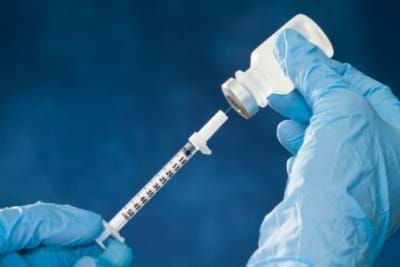
If you have allergies, you may be wondering if allergy shots are the best treatment for you. After all, getting regular shots isn't anyone's idea of fun, but the possibility of being free from your allergy symptoms may be worth it.
Allergies are the result of a chain reaction that starts in the immune system. Your immune system controls how your body defends itself. For instance, if you have an allergy to pollen, your immune system identifies pollen as an invader or allergen. Your immune system overreacts by producing antibodies called Immunoglobulin E (IgE). These antibodies travel to cells that release chemicals, causing an allergic reaction.
Immunotherapy (allergy shots) is aimed at increasing your tolerance to allergens that trigger your symptoms every time you are exposed to them. Additionally, allergy shots can prevent the development of new allergies, and in children it can prevent the progression of allergies to asthma. An allergist is the most qualified physician to test which allergy you have and tell you if allergy shots are right for you.
Allergy shots are recommended for patients with allergic asthma, allergic rhinitis (nasal/sinus allergies), and stinging insect allergy. They are not recommended for food allergies. Before a decision is made to begin allergy shots, the following issues must be considered:

Allergy shots work like a vaccine. Your body responds to the injected amounts of a particular allergen (given in gradually increasing doses) little by little, developing a resistance and tolerance to it. Allergy shots can lead to decreased, minimal or no allergy symptoms when you are again exposed to the allergen(s) in the shot.
There are two phases to immunotherapy: build-up and maintenance. The build-up phase, generally ranging from six to nine months, involves receiving injections with increasing amounts of the allergens, until a predetermined top dose is reached. The frequency of injections is generally once a week, though more rapid build-up schedules are sometimes used. The maintenance phase begins when the most effective dose is reached. This dose is different for each person, depending on how allergic you are and your response to the build-up phase. Once the maintenance dose is reached, there are longer periods between injections, typically three weeks.

For many people, a decrease in symptoms is seen during the build-up phase; for others, it may take as long as six to twelve months on the maintenance dose. If you don't respond, it may be caused by:
If there is no improvement after a year of maintenance allergy shots, your allergist will discuss other treatment options with you.